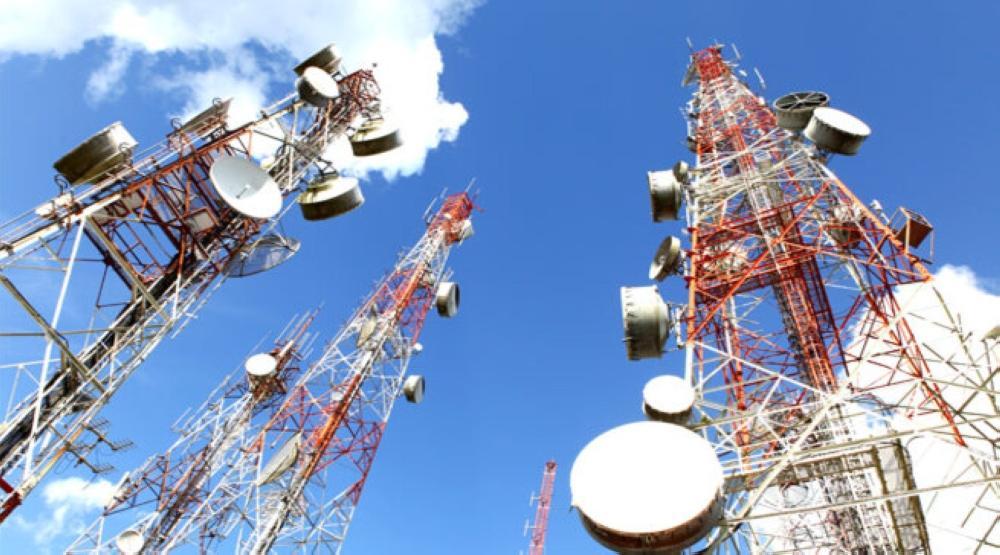Africa-Press – Rwanda. The high cost of tower rentals has become a burden for some radio and television stations which rely on these infrastructures to reach their audiences, stakeholders say.
With some stations struggling to clear their tower rental arrears, industry leaders are calling on the government to intervene by subsidising the costs for being hosted on such communication infrastructure. They argue that support is crucial for the media’s role in educating, informing, and engaging the public on issues vital to the nation’s development.
Most TV and radio towers are managed by Rwanda Broadcasting Agency (RBA), according to Rwanda Utilities Regulatory Authority (RURA).
Information The New Times received from RURA shows that transmission fees on RBA’s digital terrestrial platform and Panafrica Network Group Ltd, should not exceed $1,500 (approx. Rwf2 million at current exchange rates) per month.
For radio transmission fees, RURA indicated that some owners of FM radio stations have their towers, and the price to host other FM radio stations that do not have them varies between Rwf800,000 and Rwf1.2 million per month.
However, some radio and TV station managers say that they pay more than that.
Ildephonse Sinabubariraga, the Managing Director of Radio Ishingiro, a community radio based in Gicumbi District, said that one of the major burdens faced by media outlets is the high cost of tower rental.
“I urge the government—whether it’s the Parliament, the President’s Office, or other relevant bodies—to play a key role in addressing this critical challenge, particularly by subsidising tower rentals,” he said.
Sinabubariraga explained that his station was paying Rwf1.6 million per month in tower rental fees, totalling Rwf19.2 million annually.
Currently, he said, the community radio station owes Rwf19 million in arrears to RBA, which it is struggling to pay. The outstanding amount accumulated over three years, from 2021 to 2023, he indicated.
“We are supposed to clear all outstanding debts by the end of this financial year, but we will not make it,” he lamented.
To address the issue, Sinabubariraga suggested that the government should subsidise these tower costs to support the media’s crucial role in informing and educating the public. He indicated that radio and TV stations lead campaigns on hygiene, sanitation, stunting, and malnutrition, among other topics, all of which contribute to the community’s well-being.
“I would urge the government to play a key role in addressing this critical challenge for the growth and development of the media, mainly by subsidising the tower rentals,” he said.
Louis Kamanzi, the Managing Director and proprietor of Flash FM/TV, said that even though they do not pay TV tower fees in dollars, the cost in local currency is equivalent to the dollar amount based on the current exchange rates.
While rental fees for RBA-managed radio towers are around Rwf1.2 million per month, the cost is higher for towers owned by IHS, a telecommunications infrastructure operator, with fees around Rwf1.8 million monthly, Kamanzi said.
For instance, Flash FM’s expenses for using just three towers managed by IHS total around Rwf5 million per month, or about Rwf60 million annually. The three towers are located in Nyagatare, Jali (Gasabo), and Karongi. He noted that the high costs result in unpaid arrears.
“RURA should come in and subsidise these fees,” Kamanzi said.
RBA Director General Cleophas Barore said the fees TV and radio stations pay to be hosted on RBA towers is far less than the cost it incurs on the maintenance of such infrastructure.
“RBA’s expenses on the maintenance of those towers are very high. You realise that the fees they pay is a fifth of the entire cost,” he said, citing electricity, fuel, and spare parts, among items involved in maintenance.
During a parliamentary session held on March 13 about issues in the Information and Communication and Technology (ICT) sector, MP Etienne Nsabimana Mvano said that the Rwanda Media Commission (RMC) had earlier highlighted the various challenges within the media sector, including the high cost of tower rentals, which he believes negatively impacts the growth of the sector.
“Tower costs are very burdensome, with some media outlets paying about Rwf1.6 million per month to use RBA towers in order to disseminate information,” Mvano observed. “These high costs are threatening their viability and hindering the expansion of TV access, which is critical for providing information.”
Mvano suggested that subsidies should be provided to help lower tower rental fees for affected media outlets.
MP Germaine Mukabalisa said that RBA which rents towers to other media outlets dominates a significant portion of the advertising market – particularly for public entities – and generates substantial revenue from it.
This, she indicated, creates a situation where private media houses struggle to secure advertisers, which in turn makes it difficult for them to cover the high costs of tower rentals.
“They [TV and radio station owners] expressed concerns about this issue, and it is one of the reasons why some media outlets are exiting the industry,” Mukabalisa said.
Regulator considering way forward
Responding to lawmakers’ queries, Charles Gahungu, the Head of ICT Regulation at RURA, acknowledged that although RBA manages a significant share of the towers, there are concerns regarding the high maintenance costs involved.
“The maintenance of these towers is very expensive, and RBA has indicated that it operates at a loss,” Gahungu explained. He said that RBA proposed the option of having another entity managing the towers to reduce the financial burden.
Gahungu confirmed that RURA is in discussions with RBA to explore potential solutions to the tower rental issues. He also noted that RBA holds a license to set up radio and TV towers.
Apart from tower rental fees, TV and radio media outlets have to pay licence and frequency fees, which, coupled with other operational costs, overwhelm them.
Information from RURA shows that the cost of FM radio station and television channel licences varies according to the category of the licence and are valid for five years. The licence fee for a national free to air TV channel is Rwf5 million, that for a national commercial TV channel, Rwf8 million, a public television broadcasting channel, Rwf5 million, while that of a regional free to air TV channel is Rwf3 million.
The licence fee for national FM radio broadcasting is Rwf3 million, that of regional FM radio broadcasting is Rwf2 million, while it is Rwf1 million for a community radio broadcasting.
In addition to the licence fees, FM radio stations are required to pay frequency fees once per year.
For Kigali, FM frequency costs Rwf2 million, while it is Rwf1 million outside Kigali.
For More News And Analysis About Rwanda Follow Africa-Press






